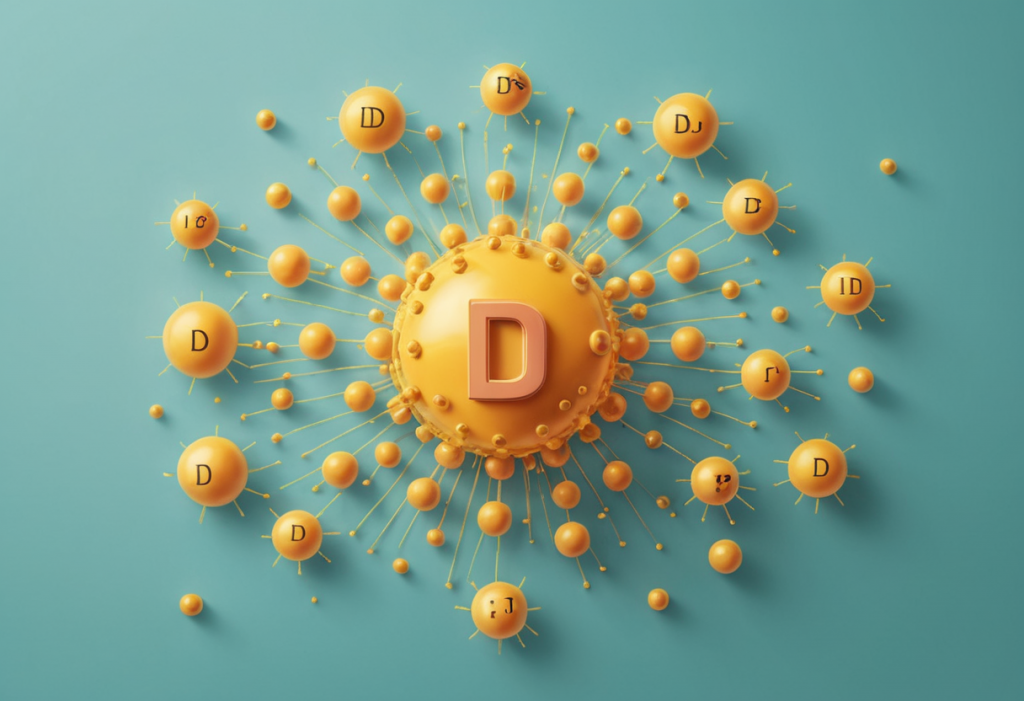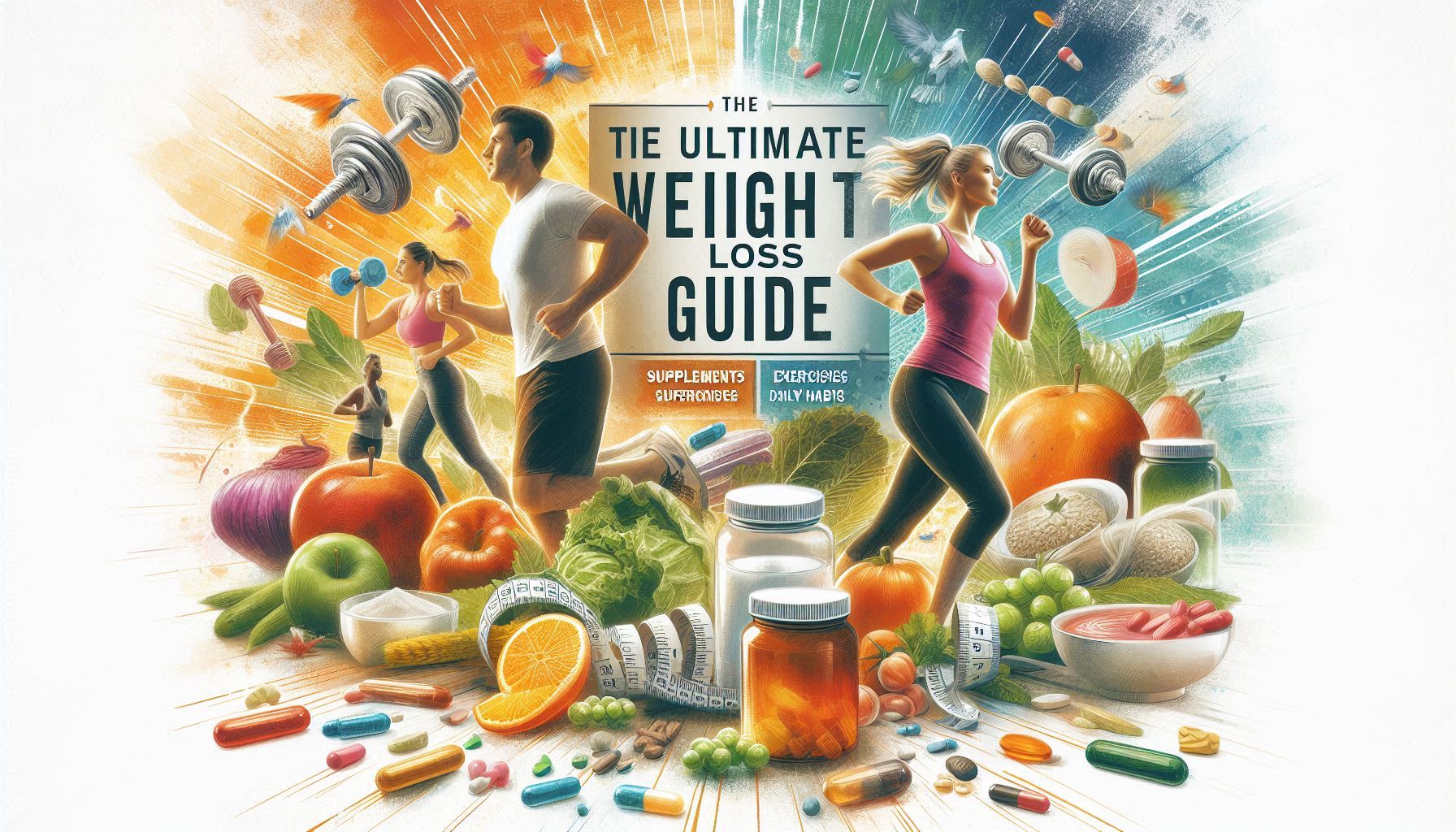Introduction
In today’s world, where maintaining a strong immune system is more critical than ever, ensuring we get the right nutrients plays a vital role in keeping our defences strong. Among those nutrients, vitamin D stands out as a game-changer. Yet, despite its importance, many people are deficient in this powerful nutrient. In this article, we’ll dive deep into how vitamin D supplements improve immune health and why this is essential for overall well-being.
We’ll cover everything you need to know: from understanding the role of vitamin D in the immune system to tips for choosing the best supplements. Ready to unlock the secrets of better health? Let’s get started!

Table of Content
- 1- Why Immune Health Matters Now More Than Ever
- 2- What Is Vitamin D? Breaking down the Basics
- 3- The Link Between Vitamin D and the Immune System
- 4- Signs You Might Be Deficient in Vitamin D
- 5- How Vitamin D Boosts Innate and Adaptive Immunity
- 6- The Science Behind Vitamin D and Disease Prevention
- 7- Who Needs Vitamin D Supplements?
- 8- Natural Sources of Vitamin D vs. Supplements
- 9- How to Choose the Right Vitamin D Supplement
- 10- Promote Your Health: Recommended Supplements
- 11- Vitamin D Supplement Dosage: How Much Is Enough?
- 12- The Risks of Vitamin D Deficiency: What Happens If You Don’t Supplement?
- 13- Maximizing Immune Health with Lifestyle Choices
- 14- Frequently Asked Questions About Vitamin D Conclusion: Make Vitamin D a Daily Habit for Immune Strength
- 15- Conclusion: Make Vitamin D a Daily Habit for Immune Strength
1. Why Immune Health Matters Now More Than Ever
With the rise in health challenges worldwide, immune health is at the forefront of everyone’s mind. The immune system is our body’s first line of defence, guarding us against harmful pathogens like viruses and bacteria. Yet, our lifestyle, diet, and environmental factors can weaken these defences.
Vitamin D plays a pivotal role in maintaining and boosting immune health. Given how easy it is to be deficient, it’s more important than ever to consider supplementation. But what exactly is vitamin D, and how does it support the immune system?
2. What Is Vitamin D? Breaking Down the Basics
Vitamin D is a fat-soluble vitamin that is naturally produced by the skin when exposed to sunlight. It’s sometimes called the “sunshine vitamin” because our bodies can produce it after just 15-30 minutes of sun exposure. However, in regions with limited sunlight or for people who spend most of their time indoors, getting adequate vitamin D from sunlight alone can be challenging.
This vitamin is essential for many bodily functions, including calcium absorption, bone health, and, most notably, immune system function. Despite its importance, research shows that around 1 billion people worldwide are deficient in vitamin D.
3. The Link Between Vitamin D and the Immune System
Vitamin D’s relationship with immune health is profound. The vitamin plays a role in both the innate and adaptive immune systems, which are the two arms of our body’s defense mechanisms. The innate system is our body’s immediate response to invaders, while the adaptive system targets specific pathogens the body has previously encountered.
Vitamin D helps in modulating the immune responses by activating T-cells, which are essential in fighting off infections. Without enough vitamin D, these cells may not work efficiently, making us more susceptible to illnesses.
4. Signs You Might Be Deficient in Vitamin D
Vitamin D deficiency can be sneaky, with symptoms that are easy to overlook. Some common signs include:
- Frequent colds or infections
- Fatigue and tiredness
- Muscle pain or weakness
- Depression or mood swings
- Slow wound healing
If you experience any of these symptoms, it’s worth considering your vitamin D levels. Many people don’t get enough through diet or sunlight alone, making supplementation an effective solution.
5. How Vitamin D Boosts Innate and Adaptive Immunity
Vitamin D influences immune health in multiple ways:
Innate Immunity: It boosts the activity of immune cells like macrophages, which are responsible for engulfing and destroying pathogens. Vitamin D also enhances the body’s production of antimicrobial proteins that fight off bacteria and viruses before they can cause harm.
Adaptive Immunity: This vitamin plays a role in activating and regulating T-cells and B-cells, which target and remember specific pathogens. By ensuring these cells function efficiently, vitamin D helps prevent the body from overreacting (which can lead to autoimmune diseases) and underreacting (which can lead to infections).
6. The Science Behind Vitamin D and Disease Prevention
Several studies have shown that vitamin D can reduce the risk of chronic diseases and infections. It has been linked to lower rates of autoimmune diseases like multiple sclerosis, rheumatoid arthritis, and type 1 diabetes. In fact, researchers suggest that maintaining healthy vitamin D levels may reduce the risk of catching common illnesses like the flu or even more serious conditions like COVID-19.
7. Who Needs Vitamin D Supplements?
While anyone can benefit from vitamin D supplements, certain groups are more at risk of deficiency:
- People living in areas with limited sunlight
- Individuals with darker skin (as melanin reduces the skin’s ability to produce vitamin D from sunlight)
- Older adults (as their skin becomes less efficient at synthesizing vitamin D)
- Those with dietary restrictions (e.g., vegans, as vitamin D-rich foods are often animal-based)
- People who spend most of their time indoors
8. Natural Sources of Vitamin D vs. Supplements
Vitamin D can be obtained naturally through:
- Sunlight: Spending time in the sun is the easiest way to get vitamin D.
- Food: Some foods are rich in vitamin D, such as fatty fish (like salmon, mackerel, and sardines), fortified dairy products, and egg yolks.
- However, for many people, it can be hard to get enough vitamin D from these sources alone. That’s where supplements come in as a convenient, reliable option.
9. How to Choose the Right Vitamin D Supplement
When choosing a vitamin D supplement, consider the following factors:
Type: Vitamin D3 (cholecalciferol) is more effective than D2 (ergocalciferol) at raising blood levels of the vitamin.
Dosage: Most adults need around 600-800 IU per day, but your doctor may recommend a higher dose if you’re severely deficient.
Form: Vitamin D is available in tablets, capsules, gummies, and liquid form, making it easy to find a supplement that fits your preferences.
Here are some Vitamin D3 (cholecalciferol) supplements those you can choose :
- SunVit-D3 Vitamin D 800 IU Tablets – Cholecalciferol
- SunVit-D3 Vitamin D 600 IU Capsules – Cholecalciferol
- Vitamin D 1000 IU – Cholecalciferol
- Vitamin D Tablets 2000 IU (Most recommended)
- Vitamin D3 3000 IU
- Vitamin D3 4000 IU
10. Promote Your Health: Recommended Supplements
To ensure you’re getting enough vitamin D for optimal immune health, consider trying one of the following recommended supplements:
Vitamin D3 Softgels: High-potency, easy-to-swallow capsules that offer 1000 IU of vitamin D3 per serving.
- Vita Premium Vitamin D Softgels
- Nu U Nutrition Vitamin D3 – 365 Softgel Capsules
- Solgar Vitamin D3 Softgels
Chewable Vitamin D Gummies: A delicious, sugar-free option for those who prefer a gummy format.
Liquid Vitamin D Drops: Ideal for those who need higher doses or have trouble swallowing pills.
- Vitamin D3 Drops 60ml (2000 Drops) – Vitamin D 1000IU per Drop
- Solgar Liquid Vitamin D3 2500 IU
11. Vitamin D Supplement Dosage: How Much Is Enough?
The recommended daily amount of vitamin D varies depending on your age, health status, and where you live. Here’s a general guideline:
Adults under 70 years: 600-800 IU/day
Adults over 70 years: 800-1000 IU/day
Those with vitamin D deficiency: Your doctor may recommend 2000-5000 IU/day
It’s always best to check with your healthcare provider before starting any supplement to ensure you’re taking the right dosage for your needs.
12. The Risks of Vitamin D Deficiency: What Happens If You Don’t Take Supplement?
Ignoring vitamin D deficiency can lead to a host of health problems, including:
- Increased susceptibility to infections
- Weaker bones and a higher risk of fractures
- Increased risk of autoimmune diseases
- Increased risk of developing chronic illnesses like heart disease and diabetes
- Read it if you want to know how to control Diabetes?
13. Maximizing Immune Health with Lifestyle Choices
While vitamin D supplements are a crucial part of supporting immune health, they work best when combined with other healthy lifestyle choices:
Eat a balanced diet: Incorporate foods rich in vitamins and minerals to support overall health.
Exercise regularly: Physical activity boosts immune function and helps maintain a healthy weight.
- Read here if you want to know how to lose weight?
Get enough sleep: Poor sleep weakens the immune system, making you more vulnerable to illness.
Manage stress: Chronic stress can impair immune function, so practice stress management techniques like meditation or yoga.
14. Frequently Asked Questions About Vitamin D
Q: Can I get too much vitamin D?
A: Yes, taking too much vitamin D can lead to toxicity, which causes nausea, weakness, and serious health complications. It’s important to stick to recommended doses.
Q: What’s the difference between vitamin D2 and D3?
A: Vitamin D3 is more effective at raising and maintaining vitamin D levels in the body, which is why it’s preferred in supplements.
Q: How long does it take to notice the effects of vitamin D supplements?
A: It may take several weeks to notice improvements in your health, as vitamin D levels gradually increase over time.
15. Conclusion: Make Vitamin D a Daily Habit for Immune Strength
Vitamin D is a simple yet powerful nutrient that plays a key role in boosting immune health. With many people around the world facing a deficiency, supplements offer a reliable way to ensure you’re getting enough of this vital vitamin. By incorporating vitamin D into your daily routine, you can strengthen your immune defenses and protect yourself from illness.
Check out our recommended listed above vitamin D supplements to support your health today!
- To read more articles check Health Diet Supps


Pingback: VitamiD Deficiency Signs,Symptoms and why Supplements Help
Pingback: 5 Supplements for Immune Health: Key Choices to Stay Strong